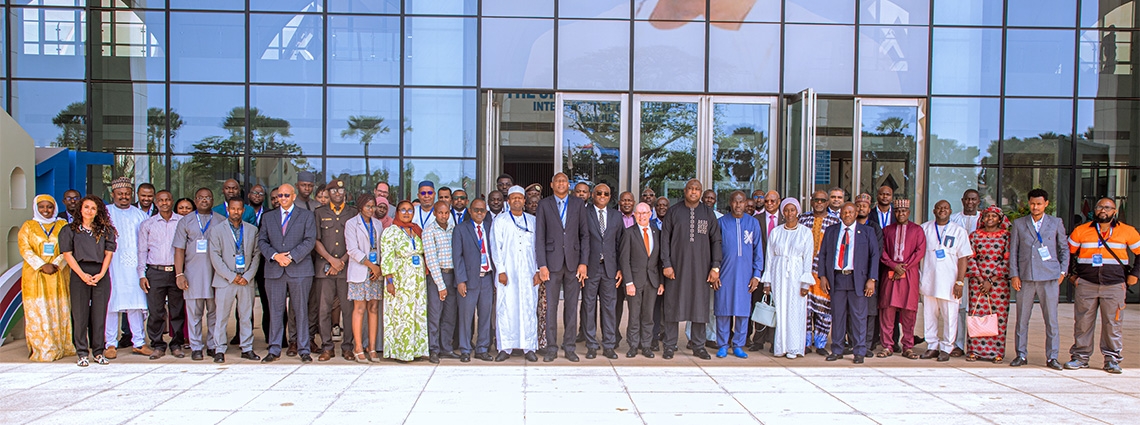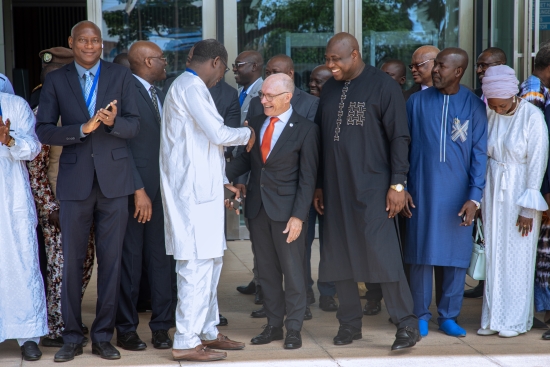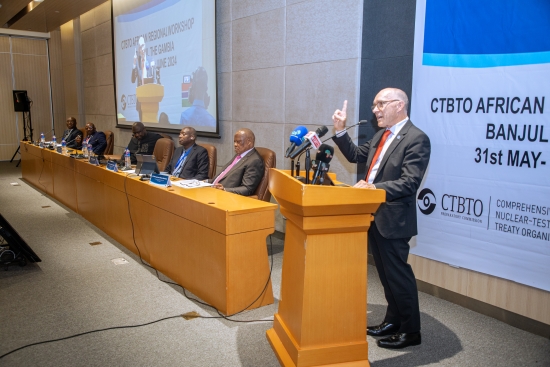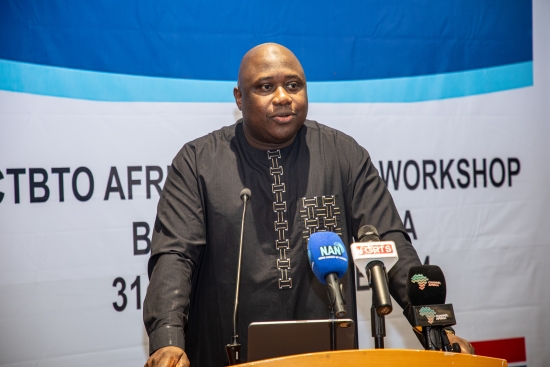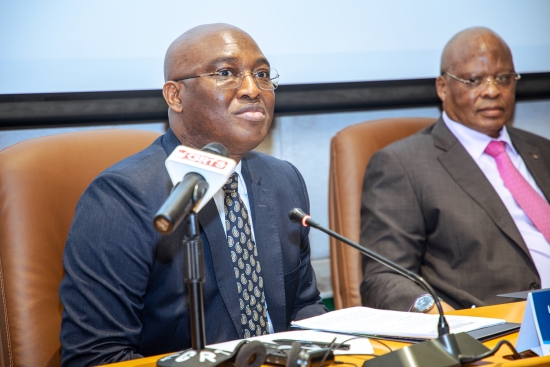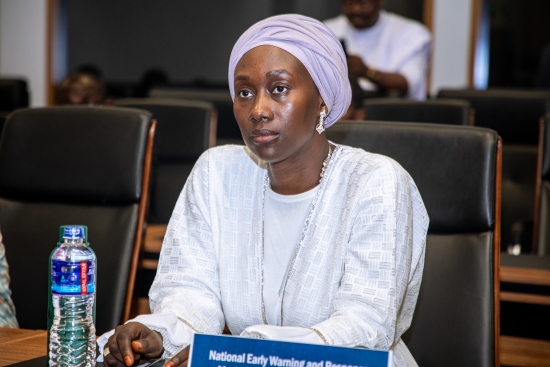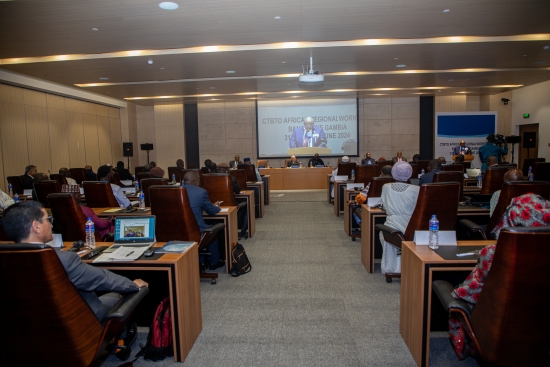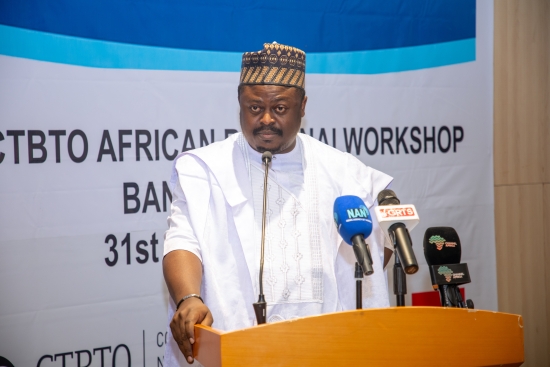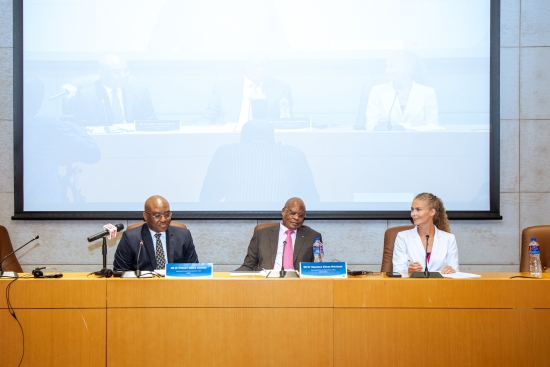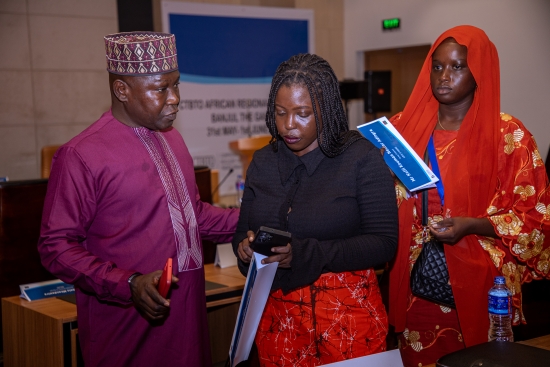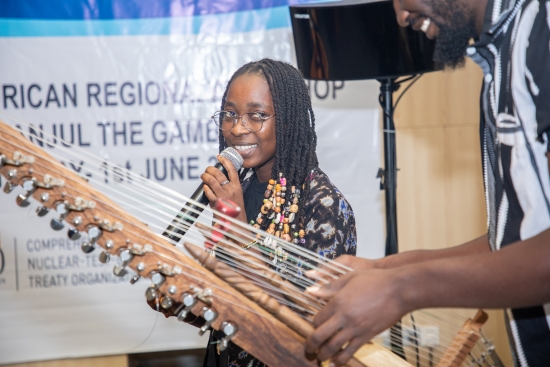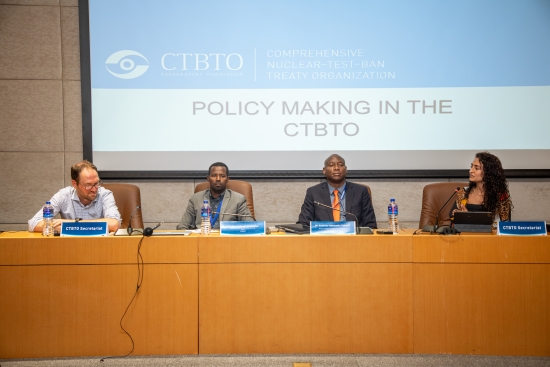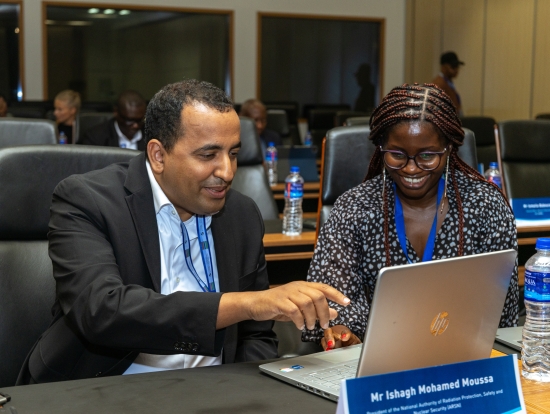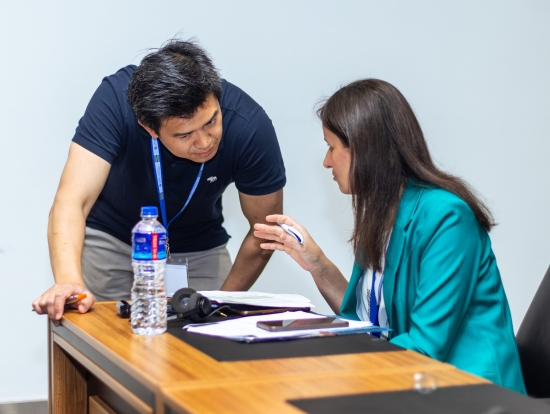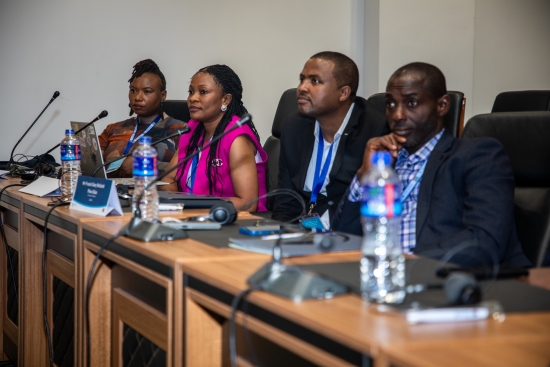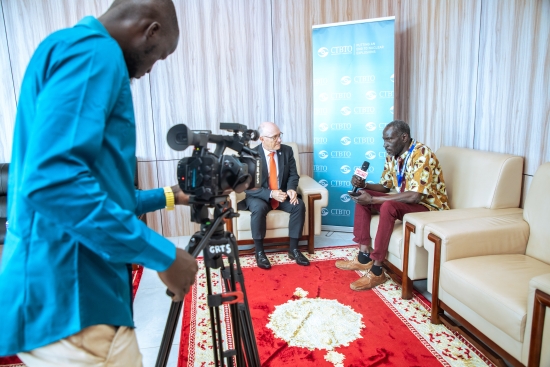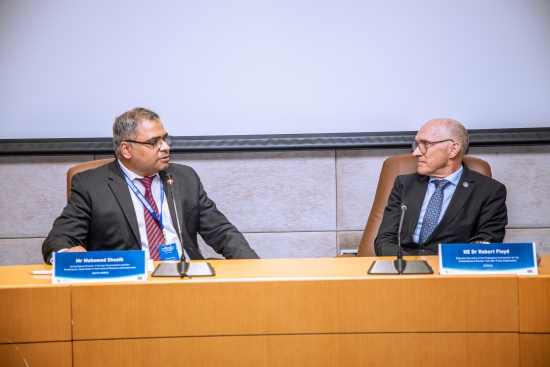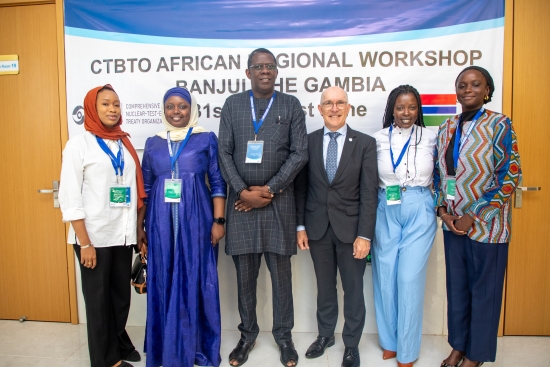Building momentum: African states convene in Banjul for CTBTO regional workshop
The Comprehensive Nuclear-Test-Ban Treaty Organization (CTBTO) held a regional workshop in Banjul, The Gambia, from 31 May to 1 June 2024.
The event aimed to deepen understanding of the Comprehensive Nuclear-Test-Ban Treaty (CTBT), with a focus on promoting full adherence across Africa, while also ensuring that all States Signatories benefit from Treaty membership.
A Gathering of Minds
The workshop brought together 27 attendees from 23 countries.
The event was opened by Attorney General and Minister of Justice of The Gambia, Dawda A. Jallow, who restated support for the CTBT, saying: “We ratified the Treaty in 2022, demonstrating our commitment to nuclear non-proliferation and disarmament… Nearly all African nations have signed and ratified – also showing their dedication to a safer and more peaceful world.”
Following the Minister, CTBTO Executive Secretary Robert Floyd addressed the participants, underscoring the significance of the workshop: “We are here because a ban on nuclear testing is in the heart of this region. I see that every day through Africa’s leadership. And we want to make sure that all our partners benefit from our precious Treaty through collaboration, support, and capacity building.”
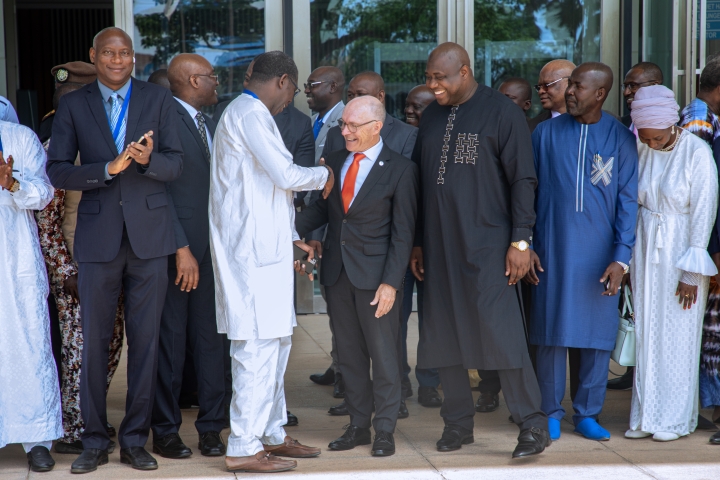
CTBTO Executive Secretary Robert Floyd greeting participants
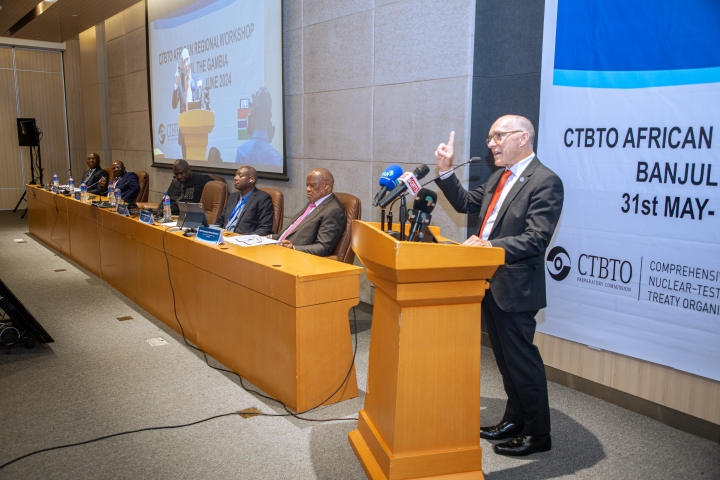
Floyd delivering statement to open workshop
The two-day event featured a series of engaging sessions, with live interpretation to and from French, delving into various topics, including:
- Importance of the CTBT: Highlighting the Treaty's relevance to African security and the recent momentum towards universality, marked by nine global ratifications since 2022, including three from the region, as well as one signature.
- Legal and Technical Aspects: Discussions covered the Treaty's legal framework, the various aspects of national implementation, and provided an overview of its verification regime.
- The International Monitoring System (IMS): A presentation on the technical capability of CTBTO’s state-of-the-art verification regime, which can detect nuclear test explosions by anyone, anywhere.
- Capacity Building Programmes, Training and Initiatives: Participants heard more about initiatives like NDCs4All, designed to give all States Signatories equitable access to IMS data and International Data Centre (IDC) products, which they can also use nationally for civil and scientific applications, such as earthquake warnings and climate change research.
Speaking about the programme, one of the participants, Mako Ronneliah Sitali, a senior geoscientist at Namibia’s CTBT National Data Centre (NDC), said: “I believe in teamwork. Being in a room with so much regional expertise was a fantastic opportunity to learn from each other and collaborate. This is a crucial first step towards realising our vision of a world without nuclear tests.”
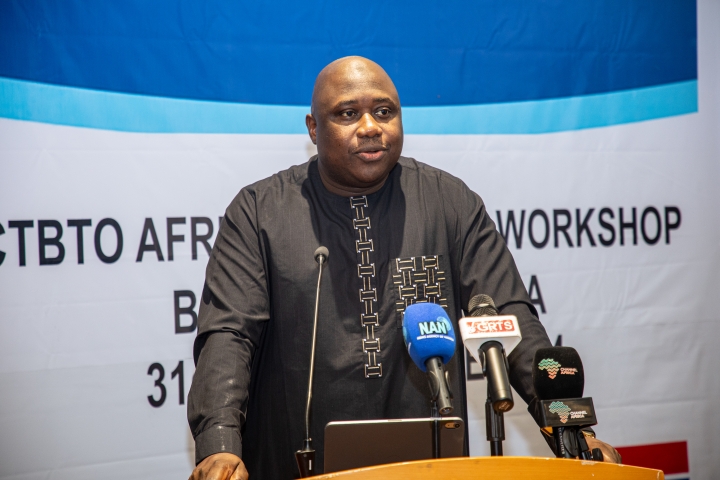
Attorney General and Minister of Justice of Gambia, Dawda A. Jallow delivering statement of support for CTBT during opening session
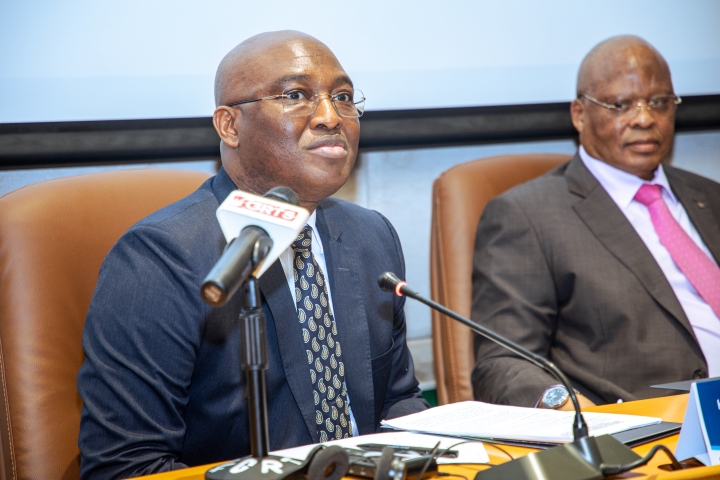
Ambassador Rapulane Molekane, Permanent Representative of South Africa and Permanent Representative of Ghana, Ambassador Philbert Abaka Johnson
Media Engagement
A dedicated session for journalists offered insights into the Organization's mission.
Attendees included representatives from The Gambia’s Radio and Television Services, and five journalists from Côte d'Ivoire, Ethiopia, Ghana, Nigeria, and South Africa, who also covered the event for their respective outlets and interviewed Executive Secretary Floyd.
Marthe Kra Akissi Benedicte of Radio Côte d'Ivoire said: “I now feel better equipped to report on the CTBT and its verification regime with greater accuracy and context.”
Nebiyou Wondwossen, a reporter from Ethiopian Broadcasting Corporation also shared his perspective: "The knowledge gained here will enhance my ability to inform and engage the public on the pressing issue of nuclear testing.”
From Past to Present: Strengthening Africa’s Engagement with CTBT
The CTBTO Regional Workshop for States Signatories of the African Region built upon previous efforts, including regional and sub-regional international training and workshops held in Cairo, Egypt; Nairobi, Kenya; Rabat, Morocco; Niamey, Niger; Abuja, Nigeria; Dakar, Senegal; Pretoria, South Africa and Tunis, Tunisia – among others.
Charles Oko, CTBTO Senior External Relations Officer, who oversaw the organization of the event, reflected: "This workshop was the first of its kind and follows the vision of Executive Secretary, Dr Robert Floyd, to increase outreach to our States Signatories and enhance their ability to contribute to and benefit from the Treaty. It targeted a region that is taking a leading role in universalising the CTBT. Through political backing and technical support, Africa has consistently contributed to our goal for peace and security. We hope participants are now better prepared to take full advantage of Treaty membership.”
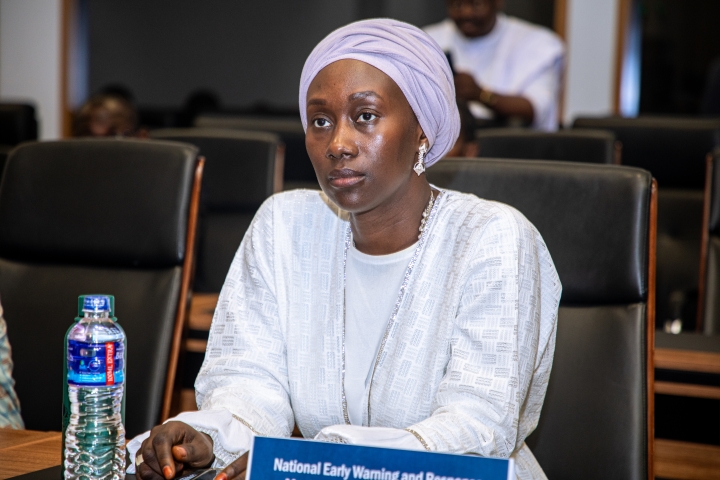
Participant listening
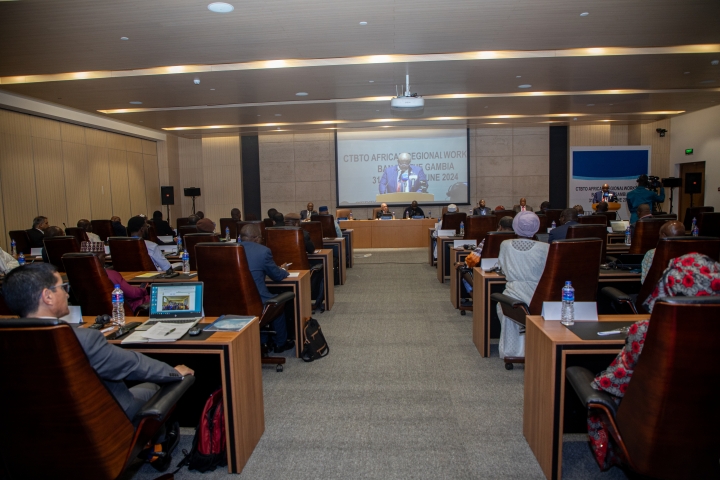
President of Economic Community of West African States (ECOWAS) Commission, Omar Touray delivering speech
Africa’s Role in Nuclear Non-Proliferation and Disarmament
Africa has been a driving force in nuclear non-proliferation and disarmament, particularly through the Treaty of Pelindaba, which established a nuclear-weapon-free zone (NWFZ) in the region.
Regarding the CTBT, the continent has played a crucial role in advocating for a global ban on nuclear testing and preventing the proliferation of nuclear weapons. To date, 52 African states out of 54 have signed the Treaty, and 50 have ratified it.
Central Africa achieved full adherence to the CTBT in 2022 through the ratifications of Equatorial Guinea and São Tomé and Príncipe, while The Gambia's ratification in the same year completed adherence in Western Africa.
Southern Africa was already in full adherence.
Additionally, 24 African states host 38 of the IMS's 337 facilities. South Africa also co-administers an auxiliary seismic station in Antarctica with Germany.
4 Jun 2024
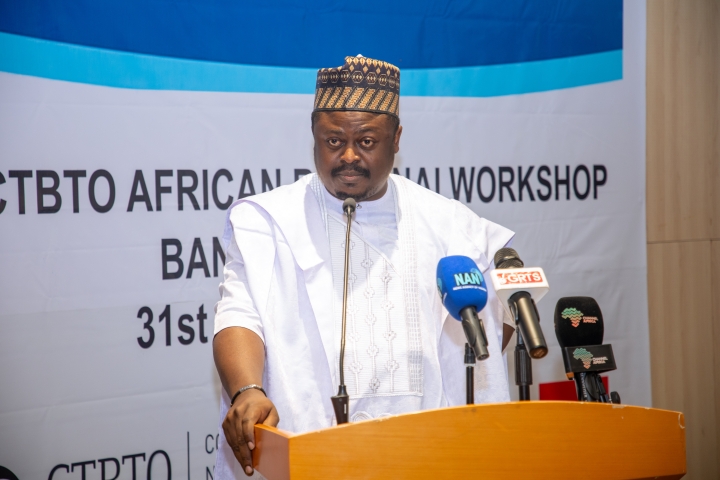
Charles Oko, CTBTO Senior External Relations Officer, facilitating opening session
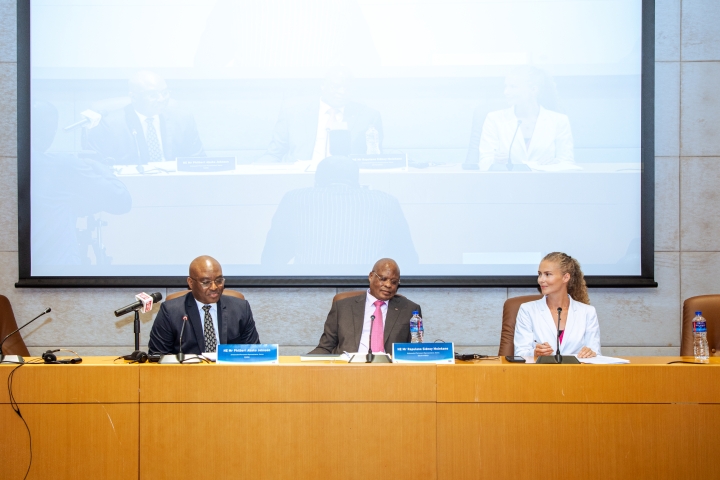
First session in progress: CTBT and its Role in Nuclear Non-Proliferation
Floyd speaking to attendee on margins of workshop
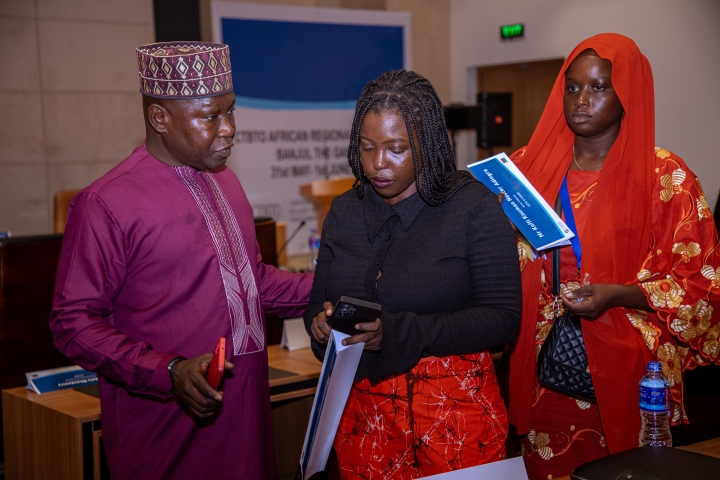
Representatives from Ministry of Foreign Affairs, Gambia, on sidelines of workshop
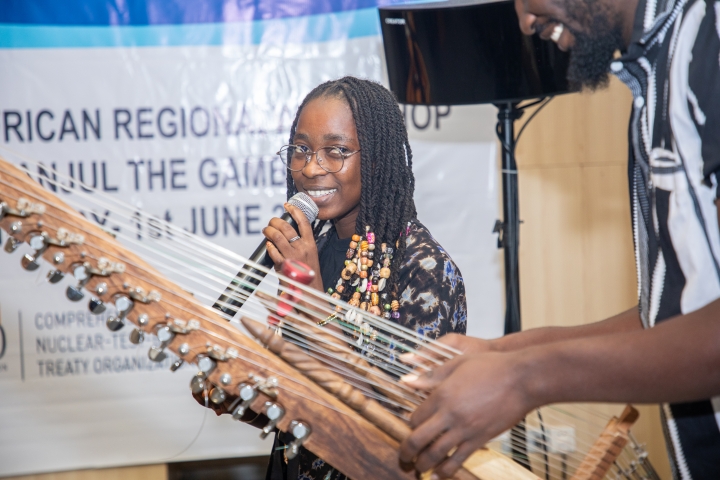
Musical performance during day one of workshop
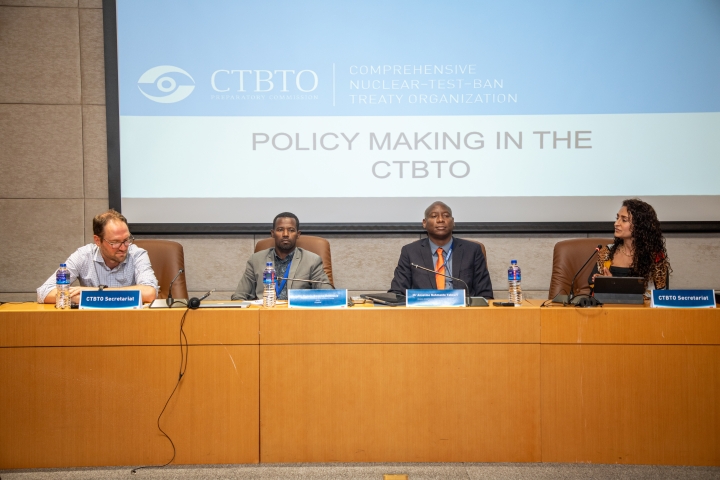
Session featuring Anselme Nahmtante Yabouri, Director of United Nations Regional Centre for Peace and Disarmament and Dereje Beyene of Ethiopia’s Ministry of Foreign Affairs
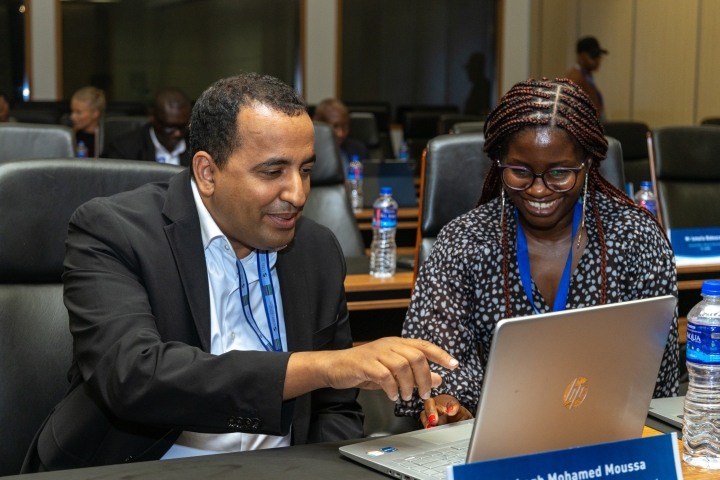
Participants on sidelines of workshop
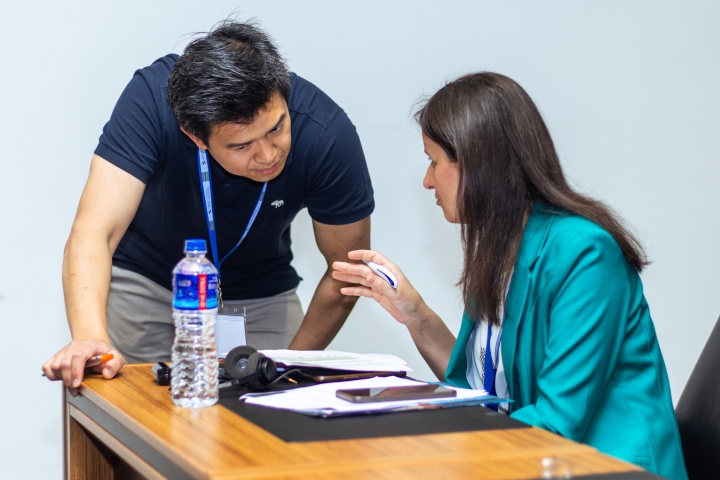
CTBTO staff speaking to participant
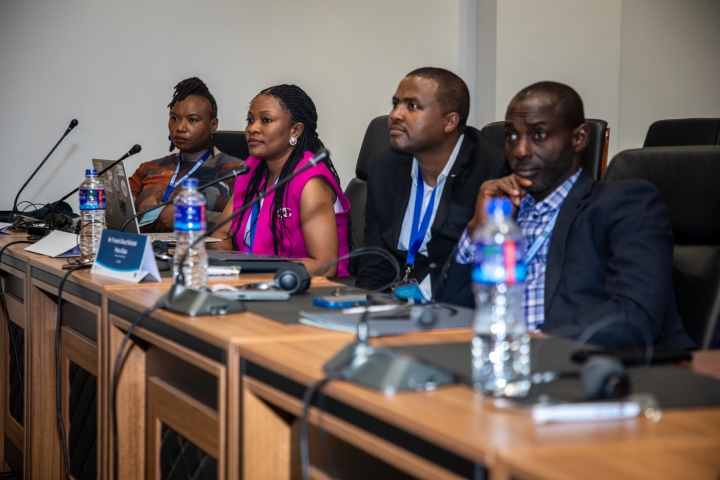
Journalists listening to presentation during media clinic
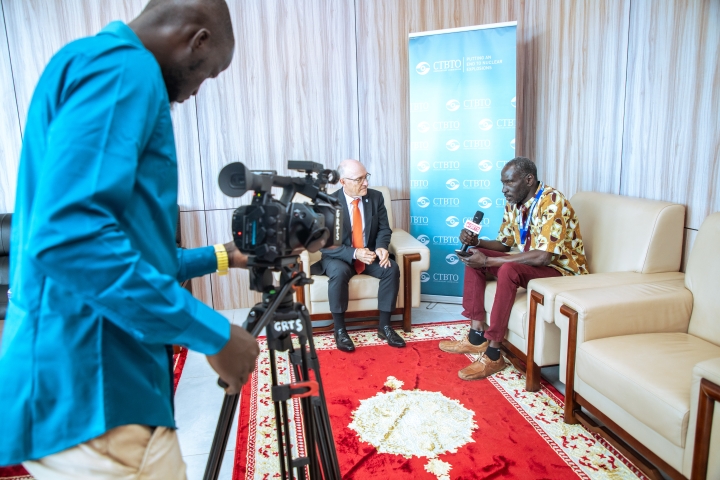
Floyd being interviewed by Gambian media
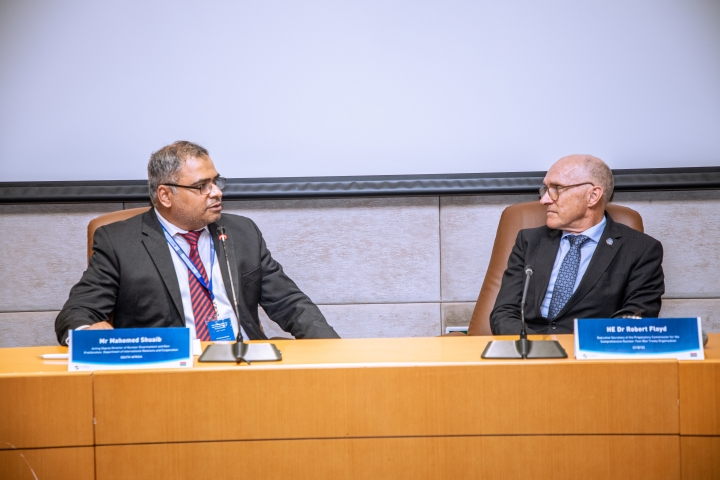
Closing session of CTBTO regional workshop with (Left to Right) Mahomed Shuaib, Acting Deputy Director, Department of International Relations and Cooperation, South Africa and Executive Secretary
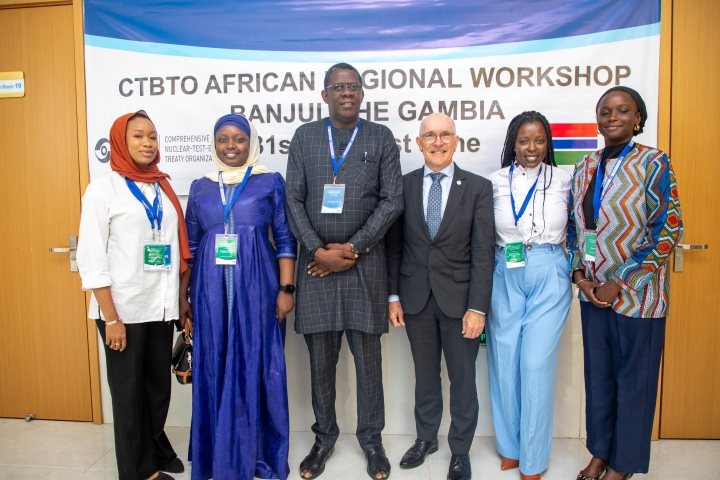
CTBTO Executive Secretary with representatives of Gambia’s Ministry of Foreign Affairs
